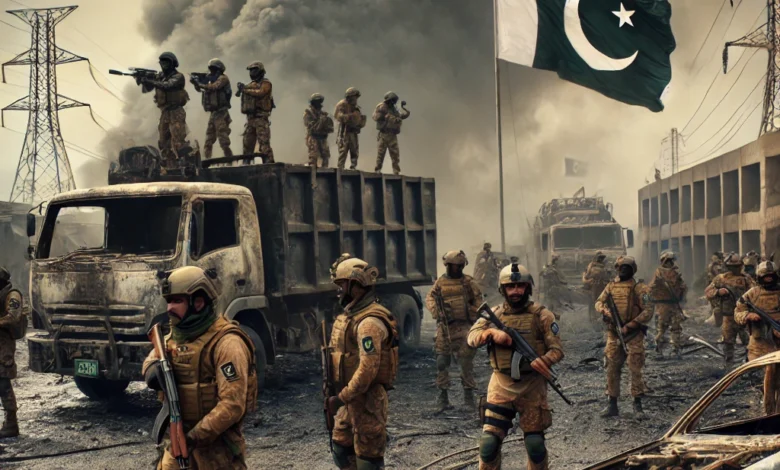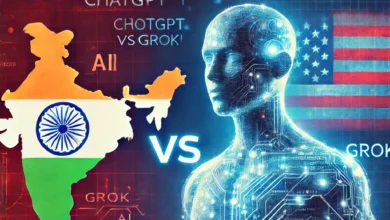Is Pakistan on the Brink of Collapse? The Endless Crisis of Terrorism and Anarchy

In recent months, Pakistan has been thrust into an abyss of escalating violence, deepening economic turmoil, and growing separatist movements, leading many to question whether the country is heading towards disintegration. From the hijacking of Jafar Express in Balochistan to suicide bombings in Peshawar, and deteriorating relations with Afghanistan, Pakistan appears to be spiralling towards what analysts term a “failed state.” At the heart of this crisis lies a fractured political landscape, a crippling economy, and a resurgent wave of terrorism—all of which threaten the very foundation of the country. But how did Pakistan reach this critical juncture?
The Roots of Pakistan’s Crisis: A Legacy of Strategic Miscalculations
For decades, Pakistan’s military and intelligence agencies have used terrorism as a strategic tool, believing it could serve their geopolitical ambitions. From supporting Afghan jihadists in the 1980s to fuelling insurgencies in Kashmir, Pakistan’s security establishment cultivated a network of militant groups.
However, over time, this Frankenstein’s monster has turned against its creators. The very factions that were once considered “strategic assets” are now waging war against the state.
The Role of ISI in the Afghan Jihad
During the Soviet-Afghan War (1979-1989), Pakistan’s Inter-Services Intelligence (ISI), in collaboration with the United States and Saudi Arabia, trained and armed Mujahideen fighters. This laid the foundation for groups like the Taliban and Al-Qaeda, who later became threats to Pakistan itself.
Terror Groups Once Protected, Now Rogue
Lashkar-e-Taiba (LeT) and Jaish-e-Mohammed (JeM), originally focused on India-centric jihad, have now expanded their influence within Pakistan. After facing Western sanctions and financial restrictions, these groups have gone into auto-pilot mode, running operations beyond state control.
Balochistan: The Burning Insurgency
One of the most explosive fault lines in Pakistan today is Balochistan, where separatist groups like the Balochistan Liberation Army (BLA) have intensified their attacks against the state.
The Jafar Express Hijacking: A Shocking Reality
On 11 March, the Jafar Express (39-Up), travelling from Quetta to Peshawar, was ambushed and hijacked by BLA militants in a remote mountainous region of Balochistan. The militants fired rocket-propelled grenades (RPGs) at the locomotive, forcing the train to stop. Hundreds of passengers were taken hostage, leading to a three-day-long standoff. The Pakistani military launched a rescue operation on 14 March, claiming that 354 hostages were saved, and 33 BLA fighters were killed. However, BLA countered this narrative, stating that over 200 passengers were executed—a claim Pakistani authorities have refused to address.
The Missing Passengers: A Dark Mystery
Despite military claims of a successful rescue operation, many survivors and independent sources question the true number of casualties. Were 200 passengers truly executed, as BLA claims? Why hasn’t Pakistan disclosed the identities of the missing persons? What happened to the 33 militants allegedly killed? No images or independent reports confirm their deaths.
BLA’s Growing Alliance with Tehrik-e-Taliban Pakistan (TTP)
The BLA and TTP have increasingly coordinated attacks, posing an unprecedented security challenge for Pakistan.
TTP’s expansion into Balochistan suggests a merger of insurgent forces against the Pakistani state. The China-Pakistan Economic Corridor (CPEC) is a primary target, as Baloch insurgents see Chinese investment as the exploitation of their land.
Why is Balochistan Fighting Back?
Mass disappearances and military crackdowns have fuelled anti-Pakistan sentiments in Balochistan.
The region’s vast natural resources—gas, coal, and minerals—are extracted for Punjab’s benefit, leaving Baloch people impoverished. The Pakistani army’s counter-insurgency tactics have led to accusations of war crimes, extrajudicial killings, and enforced disappearances.
Pakistan’s Relations with Its Neighbours: A Self-Inflicted Isolation
Pakistan’s foreign policy failures have further deepened its instability, as relations with Afghanistan, India, and Bangladesh deteriorate. Pakistan’s Fallout with the Afghan Taliban. The Taliban, once nurtured by Pakistan, have now turned hostile. The Afghan regime harbours TTP leaders, despite Islamabad’s repeated demands for action.
In retaliation, Pakistan has closed key border crossings, crippling trade between the two nations.
India and Bangladesh: The Terrorism Nexus
India accuses Pakistan of backing terror groups like Lashkar-e-Taiba and Jaish-e-Mohammed to foment unrest in Kashmir. Bangladesh blames Pakistan for funding Jamaat-ul-Mujahideen (JMB), a radical Islamist group.
Economic Collapse: The Silent Killer
Pakistan’s economic freefall is exacerbating its security challenges. Debt has surpassed $125 billion, with IMF-imposed austerity crushing ordinary citizens. Fuel and food prices have skyrocketed, triggering mass protests and riots. Foreign reserves have dwindled, leaving Pakistan on the verge of sovereign default.
IMF’s Harsh Conditions: A Political Time Bomb
The IMF bailout package has demanded severe fiscal discipline, forcing Islamabad to: Increase taxes and reduce subsidies, causing public outrage. Cut military spending, sparking tensions between the civilian government and the army.
Military vs. Democracy: The Power Struggle Intensifies
The Pakistani military, long the country’s real power centre, now faces unprecedented resistance from civilians and politicians.
The Imran Khan Factor
Former Prime Minister Imran Khan’s arrest in 2023 triggered nationwide protests. Khan’s rising popularity threatens the military establishment, leading to crackdowns on his party, PTI. The conflict between Khan and the army raises fears of political chaos and civil unrest.
Is Pakistan Headed for Another 1971?
With Balochistan and Sindh witnessing separatist movements, many draw parallels to the 1971 Bangladesh Liberation War. Could Balochistan secede, just like East Pakistan did? Will external powers intervene if Pakistan fragments?
The Nuclear Question: Global Implications
A disintegrating Pakistan poses a grave nuclear security risk. If the state collapses, who controls its nuclear arsenal? Will jihadist groups seize these weapons? Could the US, China, or India intervene to prevent nuclear proliferation?
A Nation at the Crossroads
Pakistan is staring into an abyss of political instability, economic ruin, and violent insurgency. Key Questions That Remain Unanswered. Can Pakistan’s military reclaim control over rogue terror factions? Will economic collapse trigger an Arab Spring-style revolution? Is Pakistan heading towards balkanisation?
The World Watches as Pakistan Teeters on the Edge. With no clear path to stability, the fate of Pakistan hangs in the balance. What’s your take on Pakistan’s future? Share your thoughts in the comments below! Stay tuned to The Inquest for in-depth geopolitical analysis.






